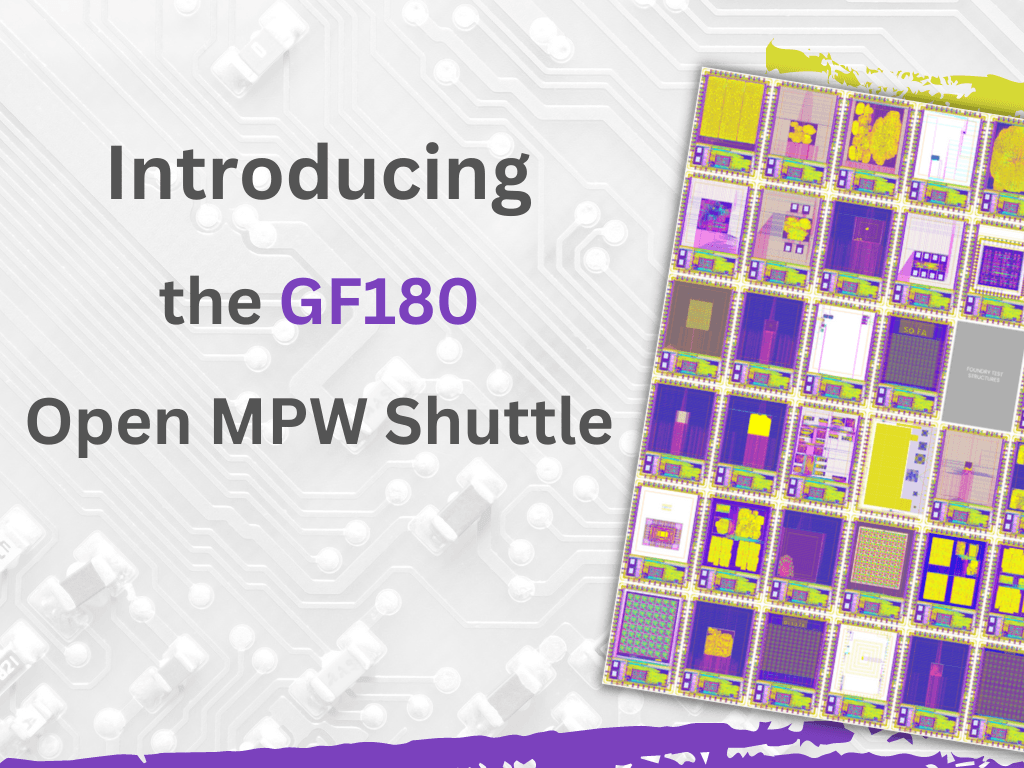Introducing the GF180 Open MPW Shuttle Program
The Open MPW Shuttle Program provides fabrication for fully open-source projects using the Open PDK for GF180MCU announced by Google and GlobalFoundries.
The shuttle provides opportunities for designers to experiment and push the state-of-the-art without having to reconcile the risk associated with the cost of fabrication.
The shuttle program is open to anyone, provided that their project is fully open source and meets the other program requirements. Costs for fabrication, packaging, evaluation boards and shipping are covered by Google for this program.
![[object Object]](https://static-files.umso.co/lib_CUsguFEVafmoKCKW/ns6hm1s6vu8ctynd.png?w=334)
